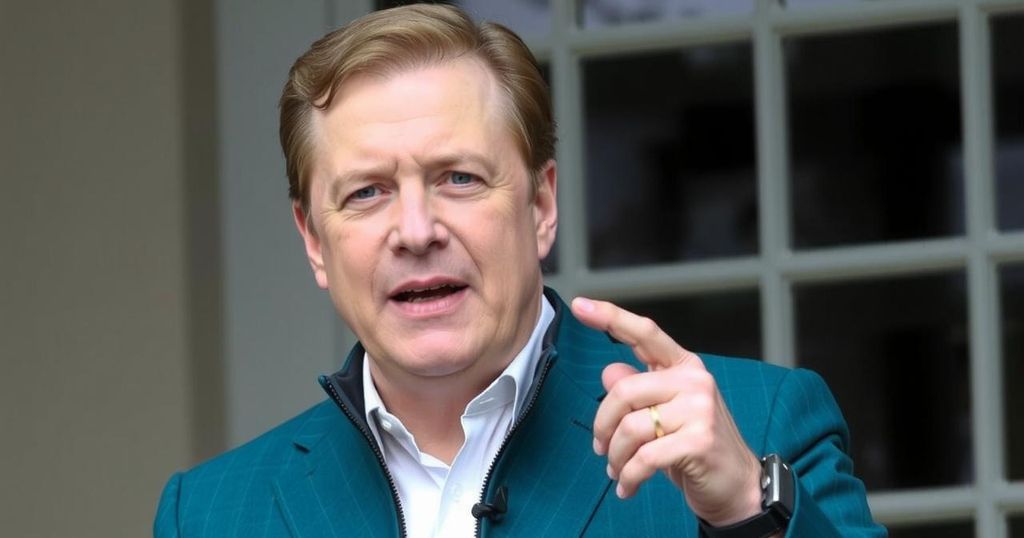German Government Responds to Musk’s AfD Endorsement Ahead of Elections

The German government is responding to Elon Musk’s endorsement of the far-right AfD party ahead of the general election. His opinion piece has ignited controversy, culminating in the resignation of a newspaper editor in protest. Government officials stress the dangers of foreign attempts to sway domestic politics, raising questions about free speech boundaries.
On Monday, the German government attempted to mitigate the controversy surrounding Elon Musk’s endorsement of the far-right Alternative for Germany (AfD) party in the lead-up to the country’s general election. This follows Musk’s opinion piece published over the weekend in a prominent German newspaper, where he expressed his belief that the AfD represents a hopeful future for Germany. The German government spokesperson, Christiane Hoffmann, remarked that while freedom of expression is essential, it can also encompass unfounded claims, insinuating that Musk’s involvement reflects a concerning attempt to sway public opinion in favor of the AfD, which is under scrutiny from domestic intelligence for its extremist affiliations.
Musk’s support for the AfD comes amidst a critical political climate in Germany, as the nation prepares for an early election on February 23, following the collapse of Chancellor Olaf Scholz’s governing coalition. In his commentary, Musk stated, “The Alternative for Germany (AfD) is the last spark of hope for this country,” while asserting that his investments in Germany provided him a stake in its national affairs. Despite Musk’s assertions, the AFd is met with resistance from other political factions, limiting its viability in the election.
The reaction to Musk’s statements has ignited broader discussions regarding free speech boundaries in Germany, highlighted by the resignation of the opinion editor of the newspaper that published his piece following significant backlash. Critics within the media and political landscape have voiced concerns regarding a foreign figure influencing German politics and the implications of his comments on the AfD’s public image, which has faced allegations of extremism.
In addition to Musk’s claims, analysts have warned that solely endorsing the AfD as a solution to Germany’s problems is misguided, asserting that collaboration among various political entities remains pivotal for effective governance in the nation. The ongoing debate underscores the complexities surrounding freedom of speech, especially when intertwined with foreign influence in domestic politics.
The context surrounding this issue involves a significant political transition in Germany, with the nation facing an upcoming early election after the dissolution of Chancellor Olaf Scholz’s coalition government. The AfD, a right-wing party, is a focal point of scrutiny due to its perceived extremist views, leading to intensive monitoring by domestic intelligence. Elon Musk’s recent endorsements of the AfD have compounded the controversy, challenging the principled boundaries of free expression while raising questions about the role of foreign influence in national elections.
The endorsement of the AfD by Elon Musk has elicited mixed reactions from the German government and public, highlighting the tensions between free speech and responsible commentary by influential figures. While Musk argues that the AfD is the country’s hope, the German government’s focus remains on ensuring a politically cohesive environment that safeguards democratic values. The complexities of this situation reflect the broader challenges facing nations grappling with foreign influence and the implications of speech on political landscapes.
Original Source: www.voanews.com







